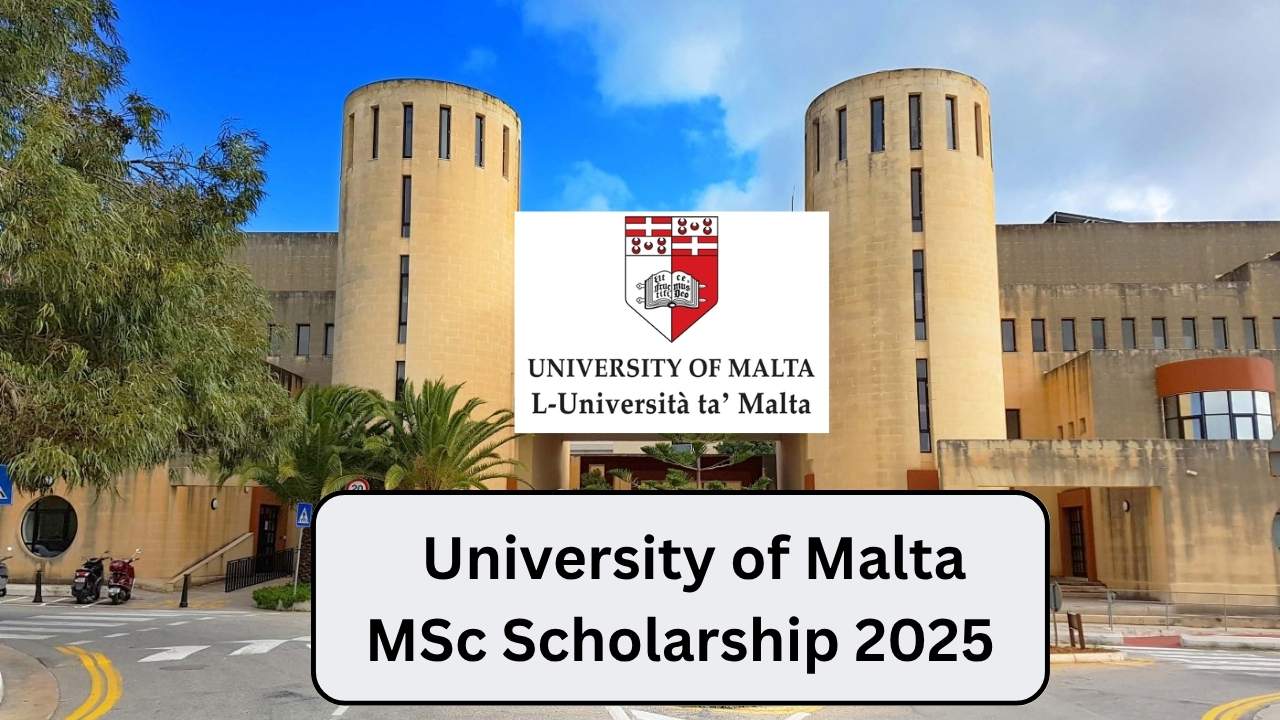Dreaming of strolling along the Seine, perfecting your French, and experiencing life as a high school student in France? Your France High School Scholarship Applications 2025-2026 Guide is here to turn those dreams into a reality! The prospect of studying abroad during your high school years is incredibly exciting, offering a chance to immerse yourself in a new culture, learn a new language, and gain a global perspective. However, navigating the world of scholarships and applications can sometimes feel like finding your way through the Louvre for the first time – a bit overwhelming! This comprehensive article will serve as your friendly roadmap, providing clear, actionable advice to help you understand and successfully apply for opportunities to study in France for the 2025-2026 academic year.

Many students I’ve advised over the years find the idea of securing funding or a place in an exchange program the most daunting part. But with the right information and preparation, it’s absolutely achievable. We’ll break down the types of opportunities available, eligibility, and the crucial steps to crafting a standout application.
Understanding High School Study Opportunities in France
When we talk about “scholarships” for high school study in France, it’s important to understand that this often encompasses a variety of programs. Unlike university-level government scholarships which might be widely advertised under a single banner, high school opportunities are typically offered through:
- Exchange Programs: Organizations like AFS Intercultural Programs (official website for AFS) or Rotary Youth Exchange (official website for Rotary Youth Exchange) are major facilitators. These programs often have fees, but many also offer scholarships or financial aid based on merit or need to cover program costs, travel, or living expenses.
- School-Specific Scholarships: Some private international schools in France may offer their own scholarships to attract talented students.
- Regional or Twinning Programs: Occasionally, specific regions or twinned cities might have exchange agreements or small scholarship funds for students.
- Tuition-Free Public Education: It’s worth noting that French public high schools (lycées) are largely tuition-free, even for international students. In such cases, a “scholarship” might focus on helping with living costs or be part of a structured exchange that facilitates enrolment.
The “opening of applications” for the 2025-2026 academic year generally refers to the period when these various organizations begin accepting submissions, typically starting in late 2024 or early 2025.
Potential Avenues for High School Study in France
| Opportunity Type | Typical Provider/Source | Key Consideration | How to Find (Example Sources) |
| Exchange Programs | Non-profit organizations (e.g., AFS, Rotary) | Program fees exist, scholarships may be available | AFS Website, Rotary Youth Exchange Website |
| School-Specific Aid | Private International Schools in France | Competitive; often merit-based | School websites, international school directories |
| Public School Enrolment | French Public Lycées | Tuition often free/low; living costs are primary | Campus France (for general info), Local education authorities (Rectorats) |
| Cultural Immersion | Various smaller cultural exchange initiatives | May have specific focus (e.g., language, arts) | Embassy cultural services, bilateral organizations |
Who is Eligible? General Criteria for French High School Programs
While specific eligibility criteria will vary significantly depending on the program provider (e.g., AFS, Rotary, a particular private school), some common themes emerge for students looking to study in France at the high school level:
- Age: Typically, students must be between 15 and 18.5 years old at the start of the program. Some programs might have narrower age brackets (e.g., 16-18).
- Academic Standing: Good academic records are usually required. This doesn’t necessarily mean being a straight-A student, but consistent effort and a good GPA are beneficial.
- Language Proficiency:
- For many immersion programs, some prior knowledge of French is highly recommended and sometimes mandatory (e.g., A1 or A2 level of the CEFR).
- Some programs might offer language support or cater to beginners, but a willingness to learn is crucial.
- In my experience, applicants who demonstrate a genuine passion for learning French often have an edge. Even starting with Duolingo or local classes before applying shows commitment!
- Maturity and Adaptability: Programs look for students who are independent, open-minded, resilient, and capable of adapting to a new culture and living environment, often with a host family.
- Health: Good physical and mental health is generally a prerequisite, with medical forms often part of the application.
- Nationality/Residency: Some programs might have specific nationality requirements or be open only to residents of certain countries.
Always check the detailed eligibility requirements on the official website of each specific program you are interested in.

Benefits of Studying in France as a High Schooler
Why choose France for your high school study abroad adventure? The benefits are vast and life-changing:
- Language Fluency: There’s no better way to learn or perfect your French than by being fully immersed. You’ll be speaking it daily in school, with your host family, and with new friends.
- Cultural Immersion: Live the French way of life! From understanding social etiquette to enjoying the cuisine, festivals, and rich history, you’ll gain a deep appreciation for a new culture.
- Academic Enrichment: Experience a different education system. French lycées offer a rigorous academic environment that can broaden your intellectual horizons.
- Personal Growth: Stepping out of your comfort zone to live and study abroad fosters independence, maturity, problem-solving skills, and self-confidence. These are invaluable assets for your future.
- Global Perspective: You’ll meet people from diverse backgrounds, develop cross-cultural communication skills, and build a more nuanced understanding of the world. This is increasingly important in our interconnected global society.
- Future Opportunities: International experience is highly valued by universities and employers. It demonstrates adaptability, initiative, and a broader worldview, potentially opening doors for higher education in France or elsewhere.
This official tweet from Campus France highlights the appeal of French education, which extends to the enriching environment high school students can experience.
Application Process Step-by-Step for High School Programs?
Navigating the application process for France high school scholarship applications and exchange programs for 2025-2026 requires careful planning and attention to detail. While specifics vary, here’s a general roadmap:
- Research Thoroughly (Early 2024 – Mid-2024):
- Identify potential programs (AFS, Rotary, school-specific scholarships, etc.).
- Visit their official websites to understand their mission, program structure, costs, and any financial aid/scholarship options.
- Note down application opening dates and deadlines for the 2025-2026 cycle. These are often in the fall or winter of the preceding year (i.e., Fall 2024/Winter 2025 for Fall 2025 start).
- Check Eligibility & Requirements (Mid-2024):
- Carefully review the criteria for each program you’re interested in.
- Assess if you meet the age, academic, and language prerequisites.
- Prepare Your Documents (Summer 2024 – Fall 2024):
- This is often the most time-consuming part. See the detailed “Required Documents Checklist” below.
- Start working on your motivation letter or essays early.
- Language Proficiency Proof (If Required):
- If a certain French level is needed, ensure you have official proof (e.g., DELF/DALF Junior, TCF results) or plan to take a test. Some programs conduct their own language assessments.
- Request Recommendation Letters (Fall 2024):
- Approach teachers or community leaders who know you well and can speak to your character, academic abilities, and suitability for an exchange program. Give them ample time.
- Complete the Online Application Form (As per program timelines – often Fall 2024/Winter 2025):
- Fill out all sections accurately and honestly.
- Double-check for any errors before submitting.
- Pay Application Fees (If Applicable):
- Some programs require a non-refundable application fee.
- Interviews (Winter 2025 – Spring 2025):
- Many programs include an interview stage (in-person or online) to assess your personality, motivations, and preparedness. This is your chance to shine and show your enthusiasm!
- Await Results (Spring 2025):
- The waiting period can be anxious, but use this time to continue learning French and preparing for your potential adventure.
- Acceptance & Pre-Departure Preparations (Spring 2025 – Summer 2025):
- If accepted, you’ll receive an offer letter and information about next steps, including visa applications (if required), insurance, travel arrangements, and host family placements.
This video would provide valuable first-hand insights into the exchange experience.
Your Essential Toolkit: Required Documents Checklist
While this list is general, it covers common documents requested for high school programs in France. Always verify the exact requirements with the specific program.
- Completed Application Form: Provided by the scholarship/program organization.
- Academic Transcripts: Official transcripts from your current high school, often for the last 2-3 years, sometimes translated into French or English.
- Letters of Recommendation: Typically 1-3 letters from teachers, school counselors, or community leaders.
- Motivation Letter (Essay): A personal essay explaining why you want to study in France, what you hope to gain, and how you will contribute. This is a critical piece!
- Language Proficiency Certificate (if applicable): Proof of your French language level (e.g., DELF, TCF).
- Copy of Passport: Ensure your passport is valid for at least six months beyond your intended stay in France.
- Passport-Sized Photographs: Meeting specific requirements.
- Parental Consent Forms: As you’ll likely be a minor.
- Health Certificate/Medical Records: To ensure you are fit for the program.
- Birth Certificate Copy.
- Financial Statement (sometimes): For programs that need assurance of ability to cover personal expenses beyond any scholarship.
Common Pitfalls to Sidestep
Avoid these common mistakes to keep your application on the right track:
- Missing Deadlines: This is often an automatic disqualifier.
- Generic Essays: Not tailoring your motivation letter to the specific program or to France.
- Grammar and Spelling Errors: This suggests a lack of care and attention to detail.
- Incomplete Applications: Forgetting to include required documents or signatures.
- Exaggerating or Being Dishonest: Authenticity is key.
- Not Researching Host Country/Culture: Showing a lack of genuine interest or understanding of France.
- Poorly Chosen Recommenders: Letters that are vague or unenthusiastic.
- Waiting for “The Perfect” Scholarship: Explore various options. The best opportunity might be an exchange program with partial aid rather than a full, elusive scholarship.
FAQs
Is French language proficiency mandatory to apply for high school programs in France?
It varies. Some programs, especially deep immersion ones, may require a basic to intermediate level of French (e.g., A2/B1). Others, particularly some exchange programs, might accept beginners with a strong motivation to learn, and may offer language support. Always check the specific program requirements.
Are there full scholarships that cover all costs for high school study in France?
Full scholarships covering absolutely all expenses (tuition, program fees, travel, living costs, insurance) are rare for high school programs. More commonly, you’ll find partial scholarships, fee reductions for exchange programs, or programs where tuition is low/free (like public lycées) and you primarily need to cover living costs and program administration fees if applicable.
When do applications for the 2025-2026 academic year typically open?
Application windows for most high school exchange programs and scholarships for the 2025-2026 academic year (starting around September 2025) generally open in the fall or early winter of the preceding year (i.e., September 2024 – January 2025). It’s crucial to check the websites of individual programs for their specific timelines.
Can I choose where in France I will be placed?
Some programs may allow you to state a regional preference, but placements are often determined by the availability of host families and schools. Flexibility is key for a successful exchange experience.






